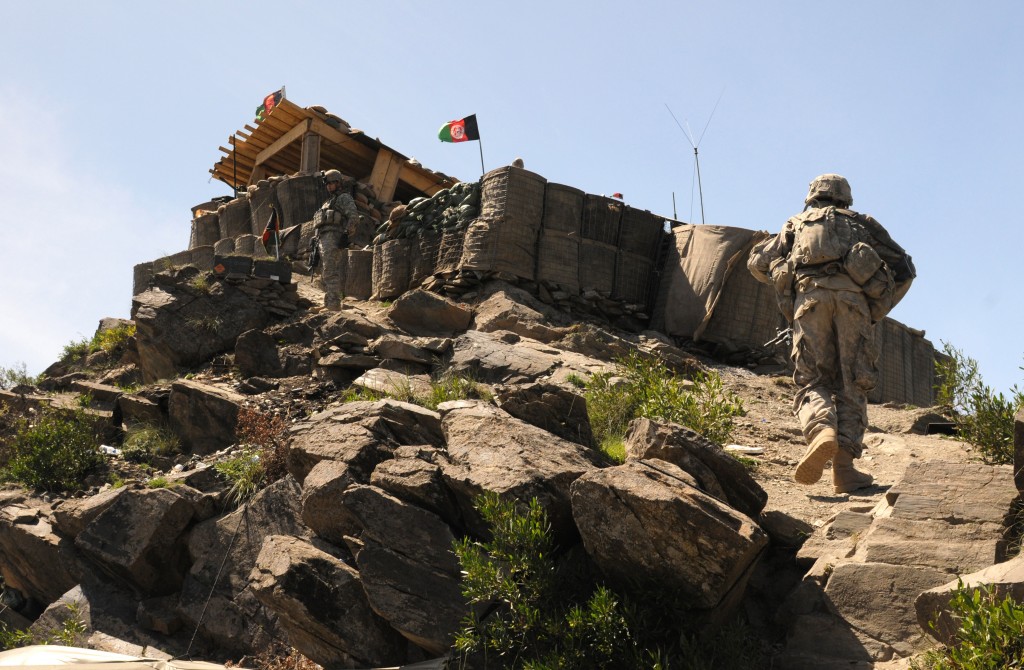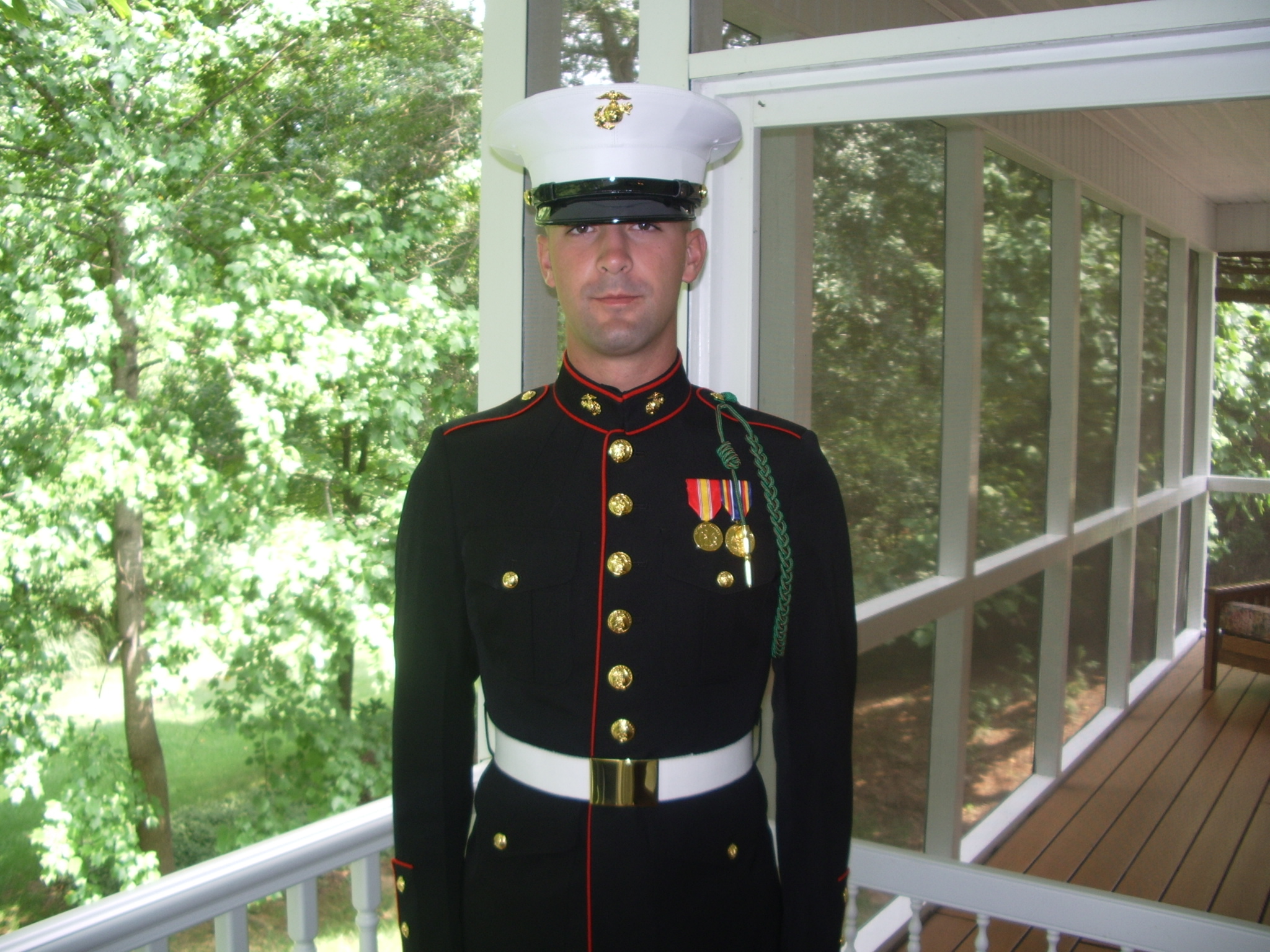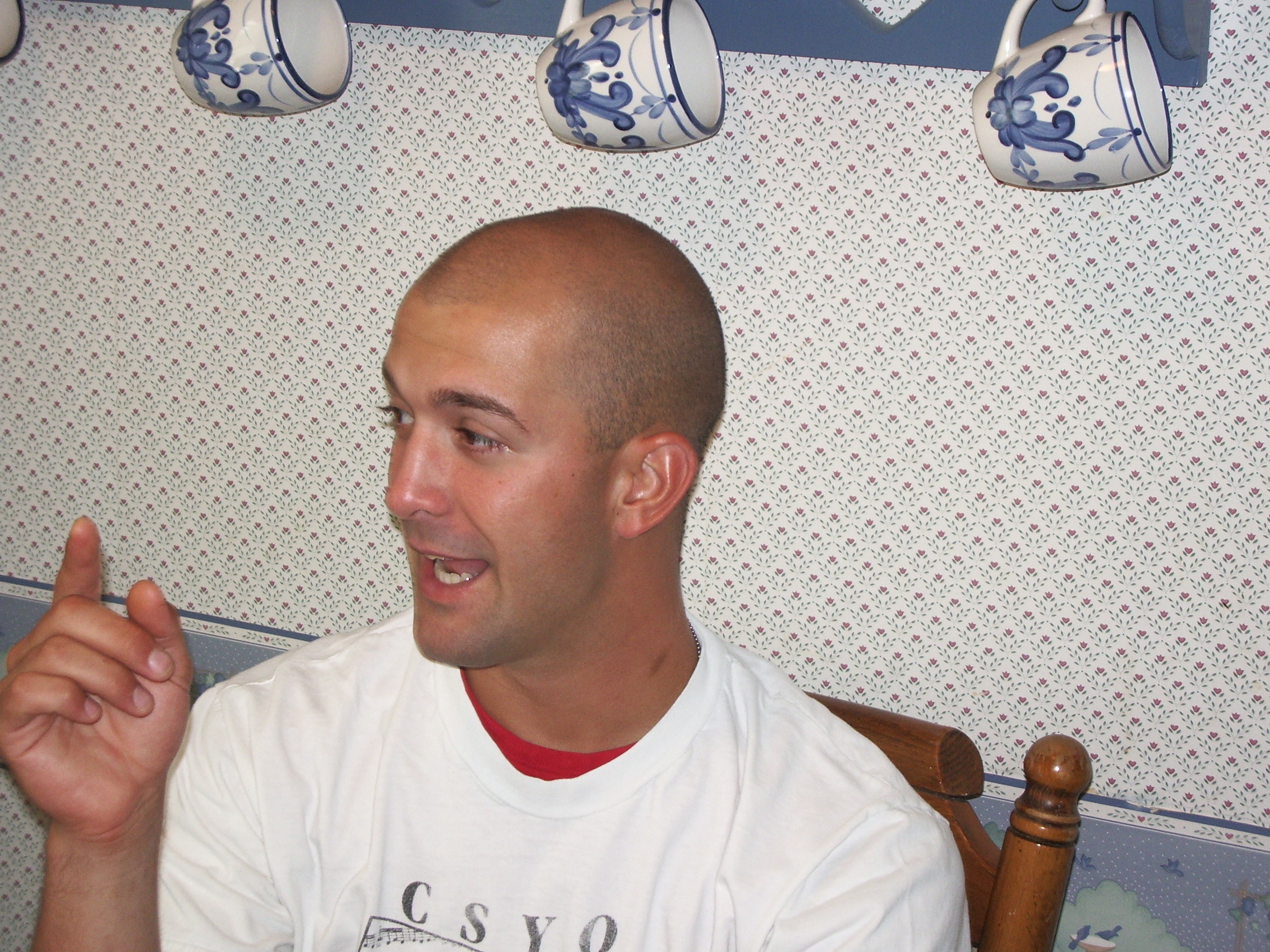Many things can cause the diminution of a military. During and after Vietnam it was the drug culture, political upheaval, and changes in core value systems in the family and society. In measure, this was addressed by General Alfred Gray, the 29th Commandant of the Marine Corps, whom I hold in iconic status. General Gray brought back the warrior ethos to the Marine Corps after the Vietnam era. I requested that General Gray send my son an autographed picture of him as a boot camp graduation gift. He kindly obliged with a picture of himself in cammies, autographed and with a nice note congratulating my son on becoming a “warrior.” It is framed and hanging on our wall at home. It is of note that he signed the photograph “General Al Gray, Marine.”
No pretentions, just “Marine.”
There are other dangers for our military, due in no small part to the military-industrial complex. There is a very sobering piece entitled “Regression,” by William Lind. In part he says:
When I was in Israel several years ago, I said to my host, a retired Israeli general with several interesting books to his credit, that I thought the IDF had begun to regress to the Second Generation after the 1973 war. He told me I was wrong; the regression had begun after the war in 1967.
The question of how it happened, and why maintaining the culture of a Third Generation military is so difficult even for armed services that have attained it—the Royal Navy lost it after the Napoleonic Wars, for reasons brilliantly set forth in Andrew Gordon’s The Rules of the Game, and the German Army lost it when the Bundeswehr was created, for political reasons—is of interest far beyond Israel. A number of Israelis have traced it in their case to the development of a large weapons R&D and procurement establishment, and I think there is a lot to that argument.
The virtues required in military officers involved in weapons development and procurement are the virtues of the bureaucrat: careful, even obsessive attention to process; avoiding risky decisions, and whenever possible making decisions by committee; avoiding responsibility; careerism, because success is measured by career progression; and generally shining up the handle on the big front door. Time is not very important, while dotting every i and crossing every t is vital, since at some point the auditors will be coming, and the politicians and the press will be waiting eagerly for their reports. Remunerative careers in the defense industry await those officers who know how to go along to get along. While the Israeli defense industry has produced some remarkably good products, such as the Merkava tank, getting the program funded still tends to be more important than making sure the weapon will work in combat. As time goes on, efficiency tends to become more important than effectiveness; not surprisingly, the simpler and more effective Israeli weapon systems came earlier, and more recent ones tend to reflect the American tendency toward complex and expensive ineffectiveness.
The Israeli inquiry into the Lebanon fiasco is unlikely to address this issue for the same reason it is not addressed in the United States: too much money is at stake. The R&D and procurement tail now wags the combat arms dog. Nor is the question of how to reverse the process and restore the virtues a Third Generation military requires in its officers an easy one. Those virtues—eagerness to make decisions and take responsibility, boldness, broad-mindedness and a spirit of intellectual inquiry, contempt for careerism and careerists—are not wanted in Second Generation militaries, and officers who demonstrate them are usually weeded out early. A Third Generation culture is difficult to maintain, and even more—impossible perhaps?—to restore once lost.
Yet, as I have said many times in these columns, a Second Generation military, no matter how lavishly resourced, has no chance against Fourth Generation opponents. In this conundrum lies the fate of the state of Israel, and the fate of states everywhere.
I am quick to speak out on the need for advancements in technology when it comports with troop protection and effectiveness, and when the technology is something other than R&D adventurism. I posted on “Thermobaric Weapons and Body Armor,” and I posted here and here on proper funding of the Marine Corps. But if you’ll notice about these posts, the equipment, if successful, would redound directly to increased safety for troops and effectiveness of our forces. And … immediately so.
There is a darker side of the military establishment. This side nurtures careerism, avoidance of responsibility, networking, and bowing to political pressures. May I speak for the grunt for a minute? When the grunts see this, they always judge it for what it is, and they immediately lose all respect for those who behave this way. This loss of respect is irrevocable.
The most technologically advanced equipment is no replacement for well-trained, well-led and motivated troops. To be frank, for those who have their career as the premier concern, they should just step aside and save their reports the trouble of cleaning up their mess and suffering the consequences of their careerism. For the military-industrial complex, I have more harsh words for you. If you are selling inferior products to the military, doctoring or embellishing data just to make a sale when you know that some other product is better suited to the mission, or in any way endangering our boys at arms in order to make a buck, you may be able to keep up the pretensions before men, but God sees things that take place in secret. He knows the thoughts and intentions of the heart, and there will be a day of reckoning. That will be an awful day for you.
I was dropping my son off at Camp Lejeune the day after labor day, and I saw Daniel’s eyes light up, as he said “Awesome. Big flag today!” He proceeded to inform me of the size of the flag and to mark the days that they flew that size flag. He then said something rather stunning to me. He said, “There are no more patriots.” I rode the rest of the way to his barracks in silence. He got out of the car, hugged me tightly, and said, “I love you dad.” I have noticed that things that a boy wouldn’t otherwise do when he is a teen or in his early 20’s, Daniel has no problem doing, even around other Marines. Somehow, the things that the Marine Corps instills and teaches makes them into something different than they were before. They have a certain confidence that seems unshakable.
As I drove away from the base, I thought, “I know at least one patriot who is left. And, I’ll bet that there are more than 2500 more who have perished in Iraq.”
With boys like these, we may just be okay.








